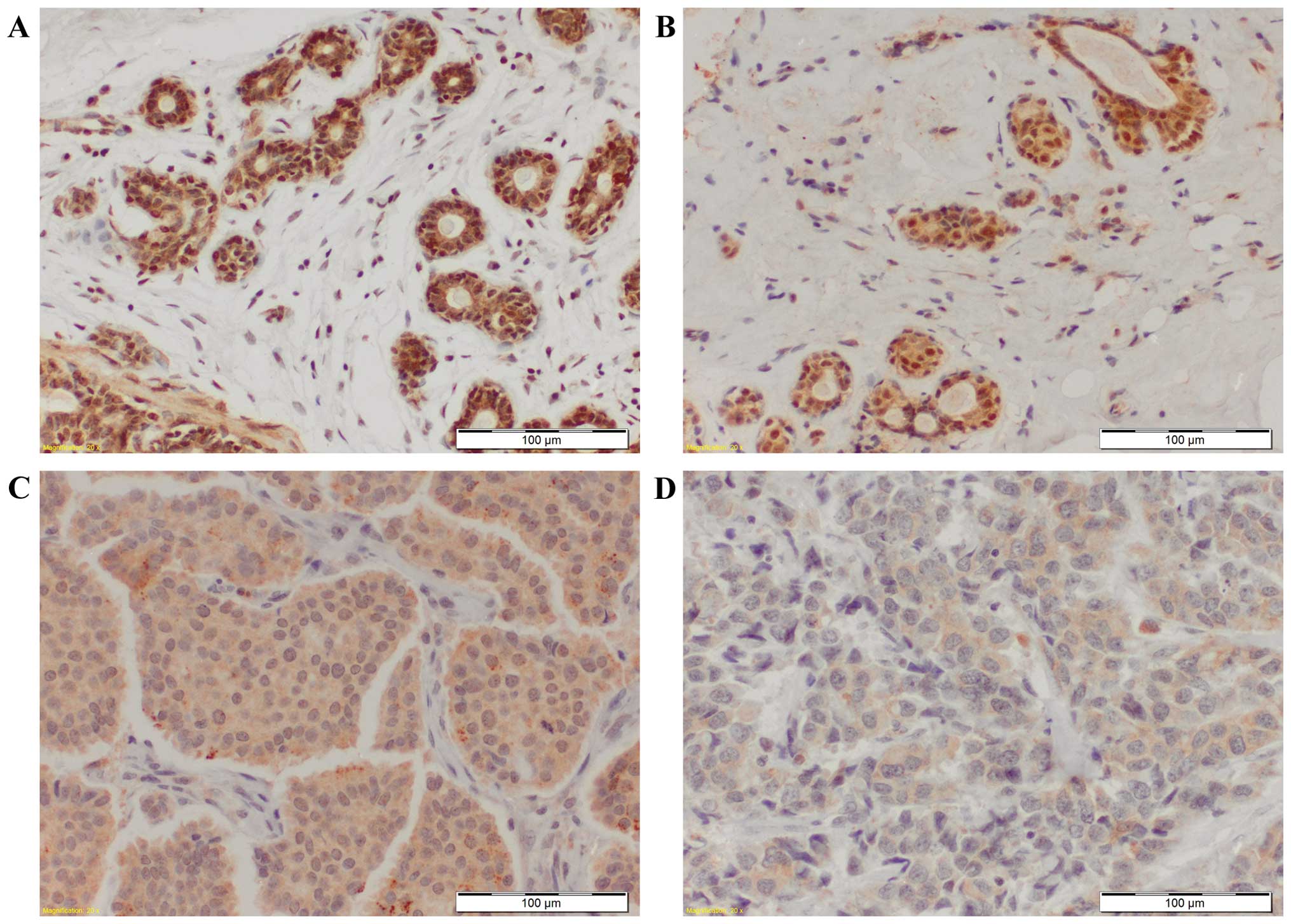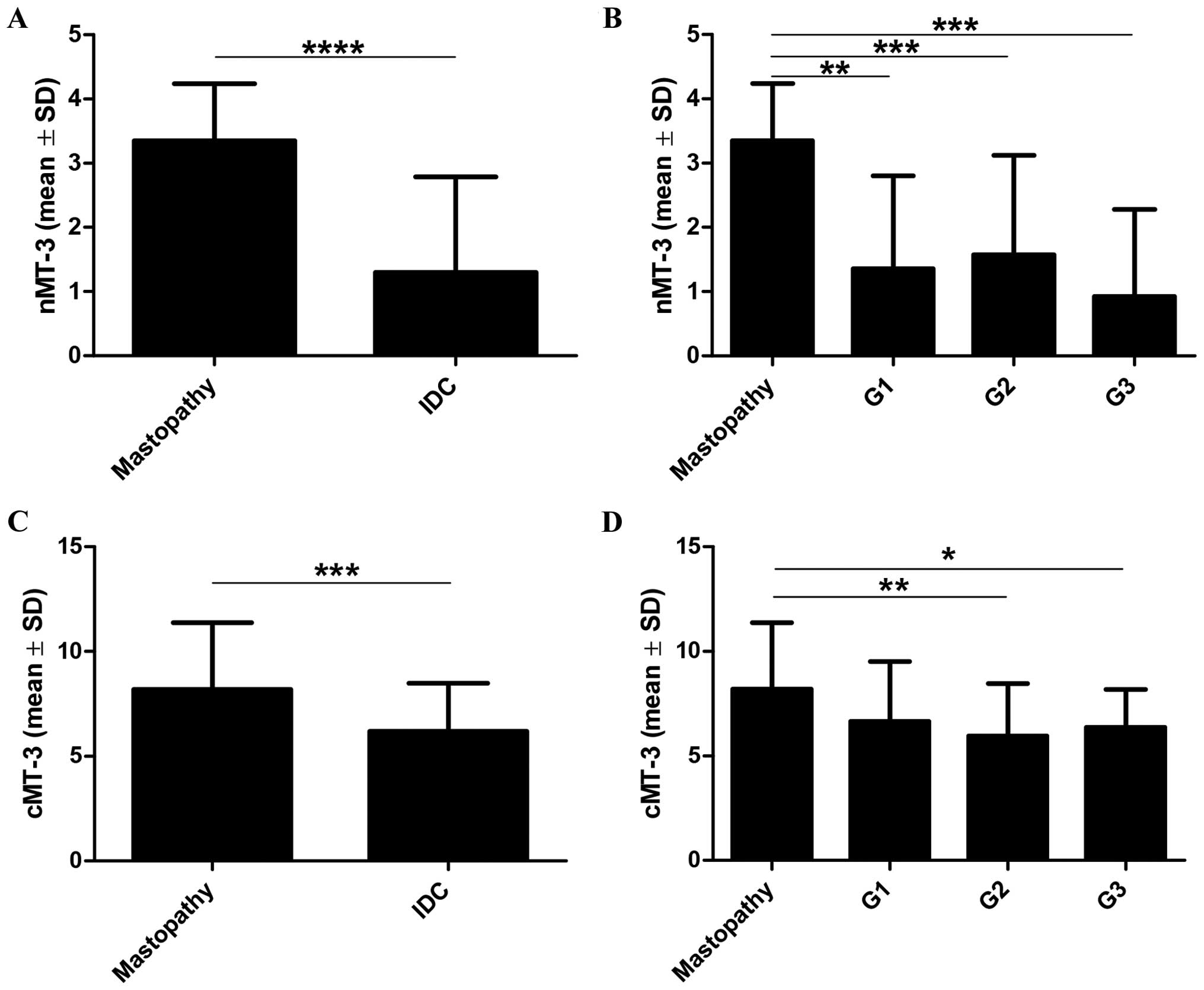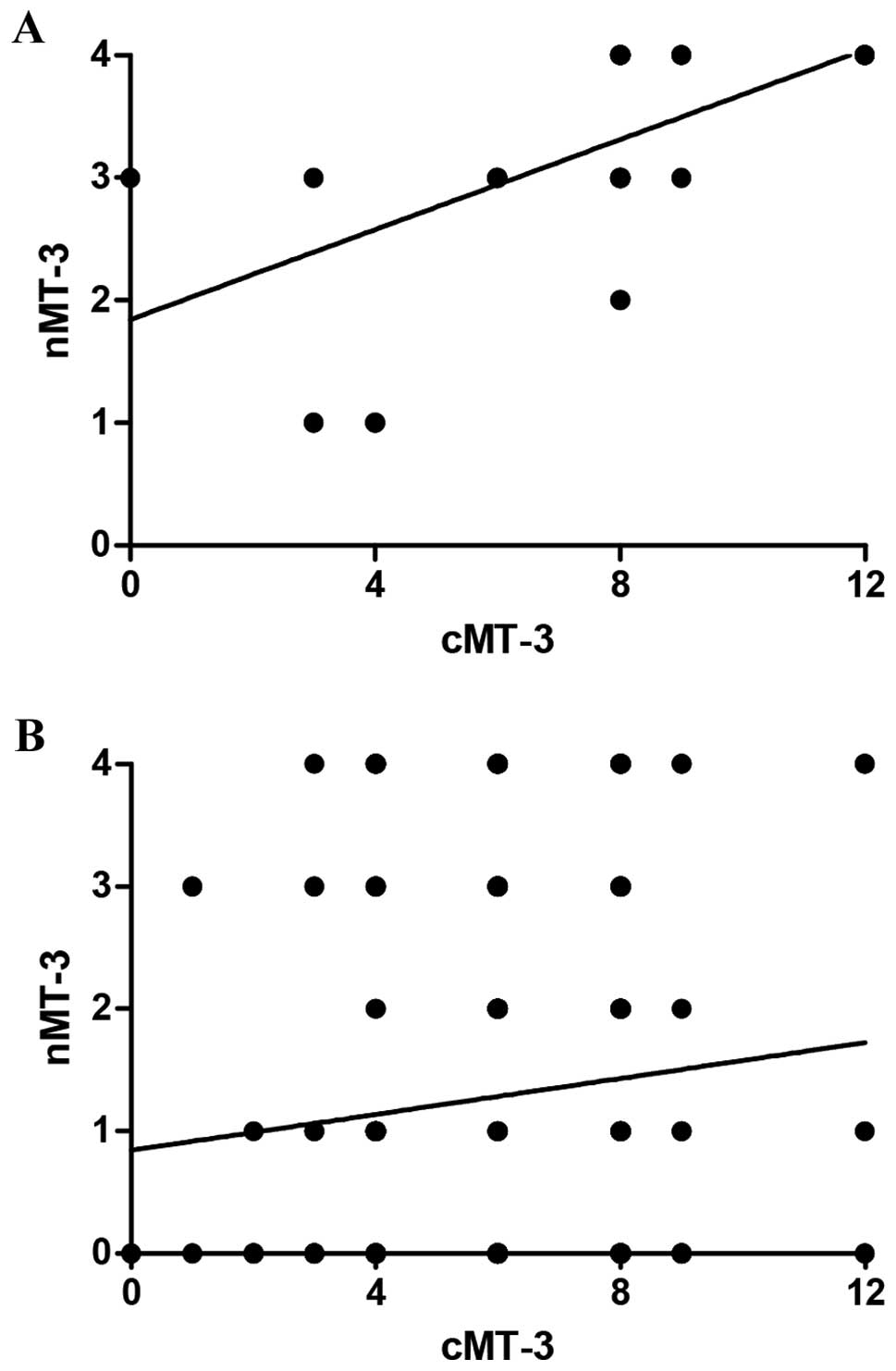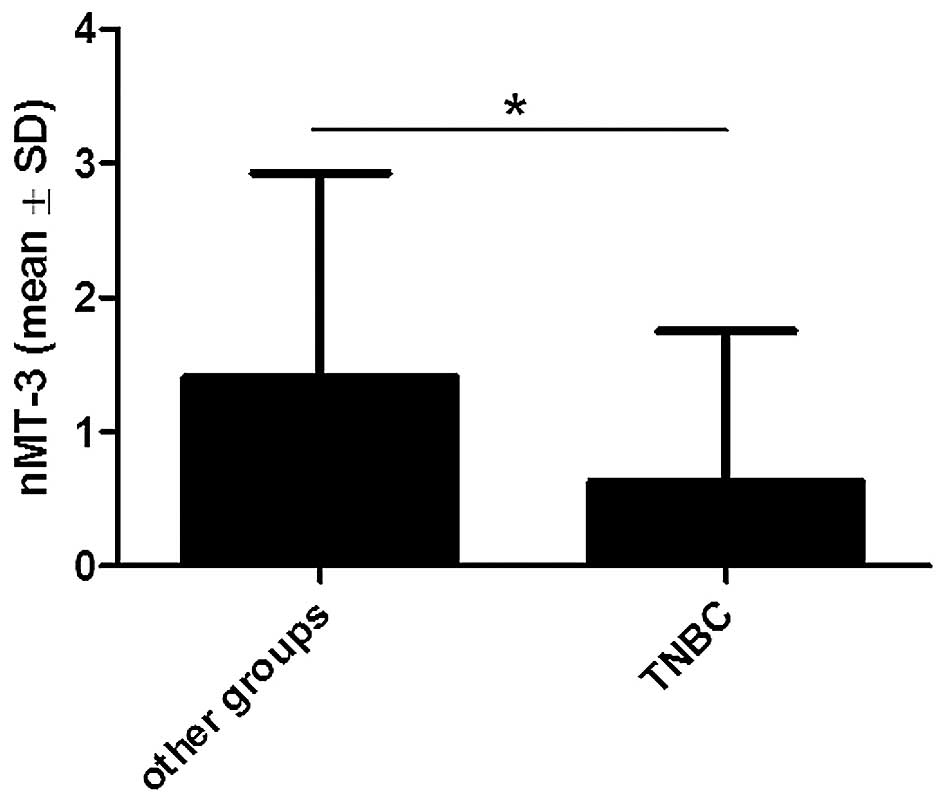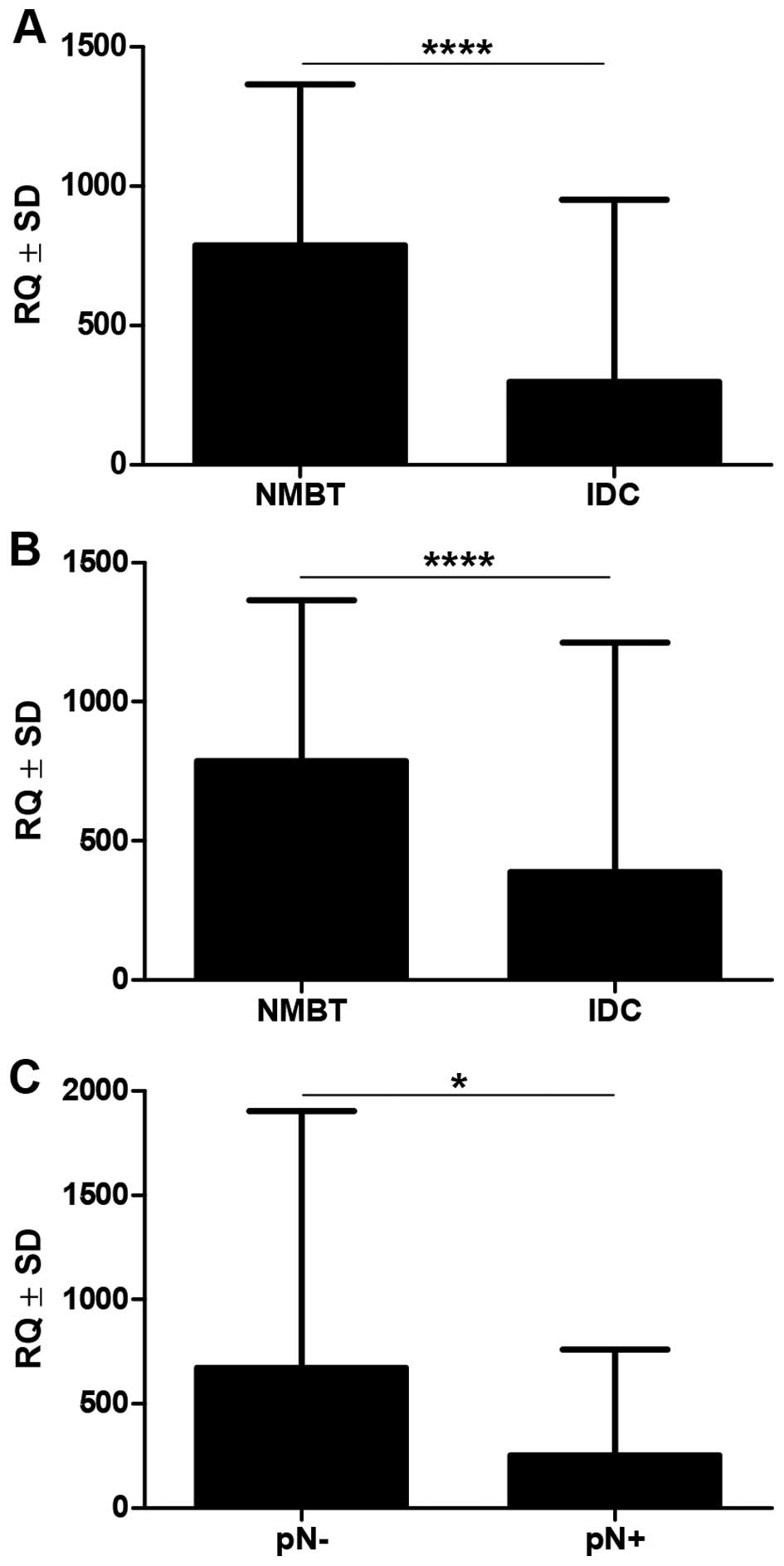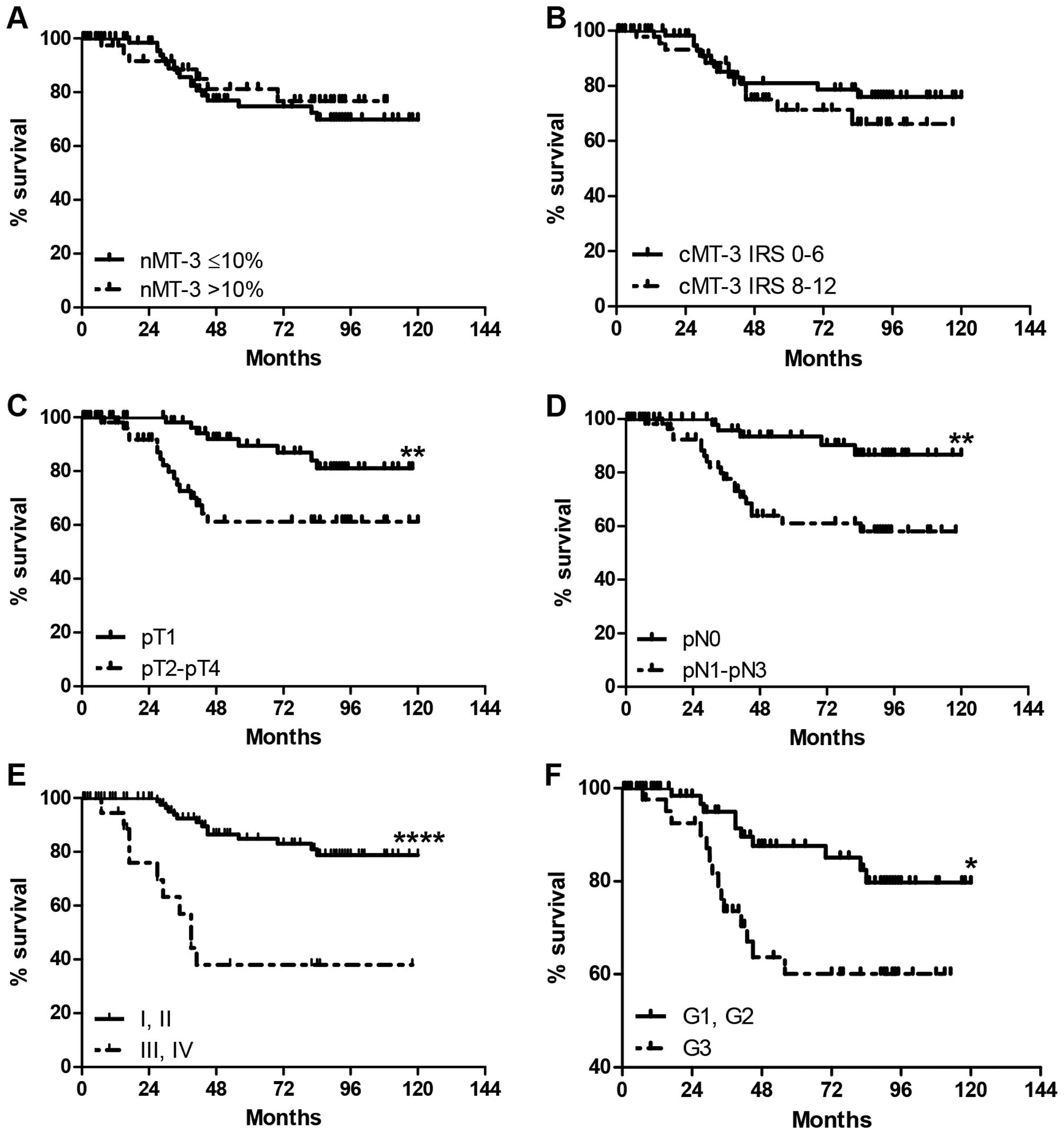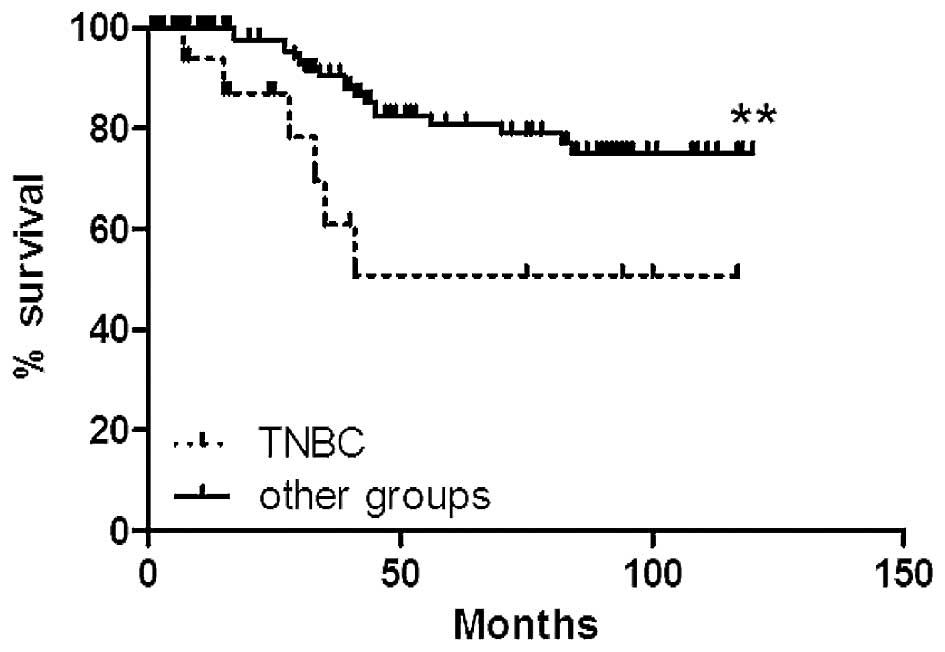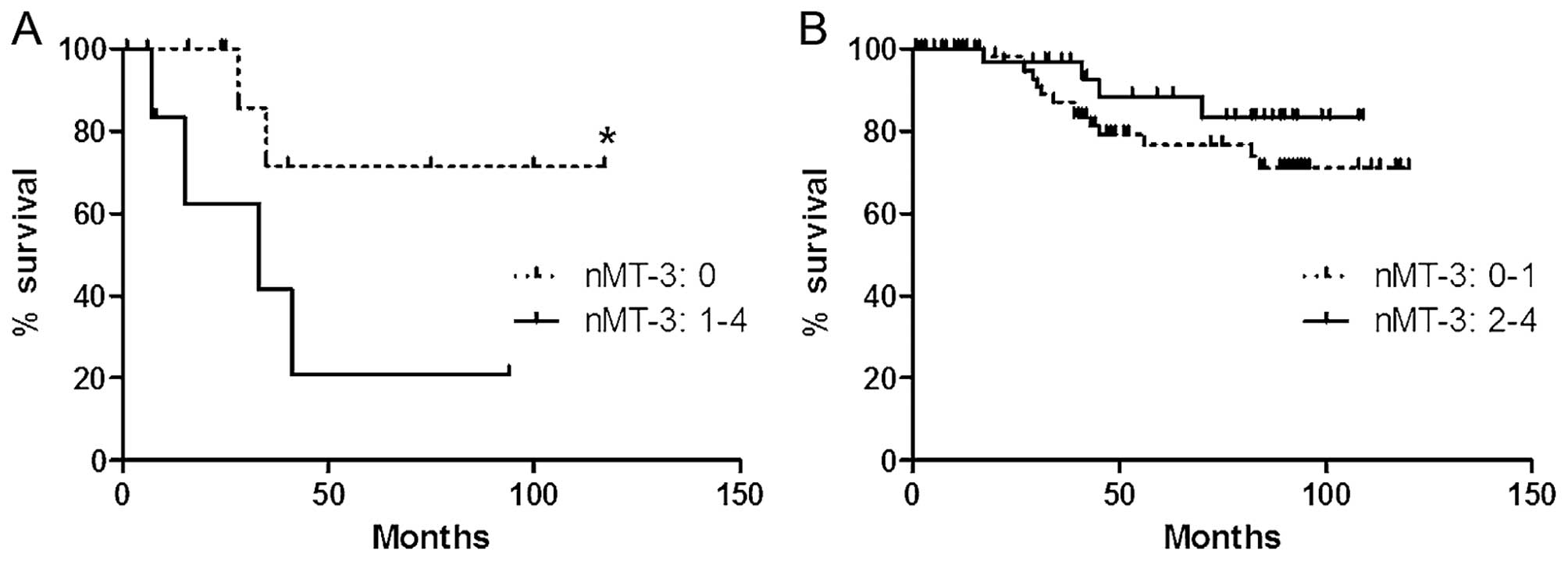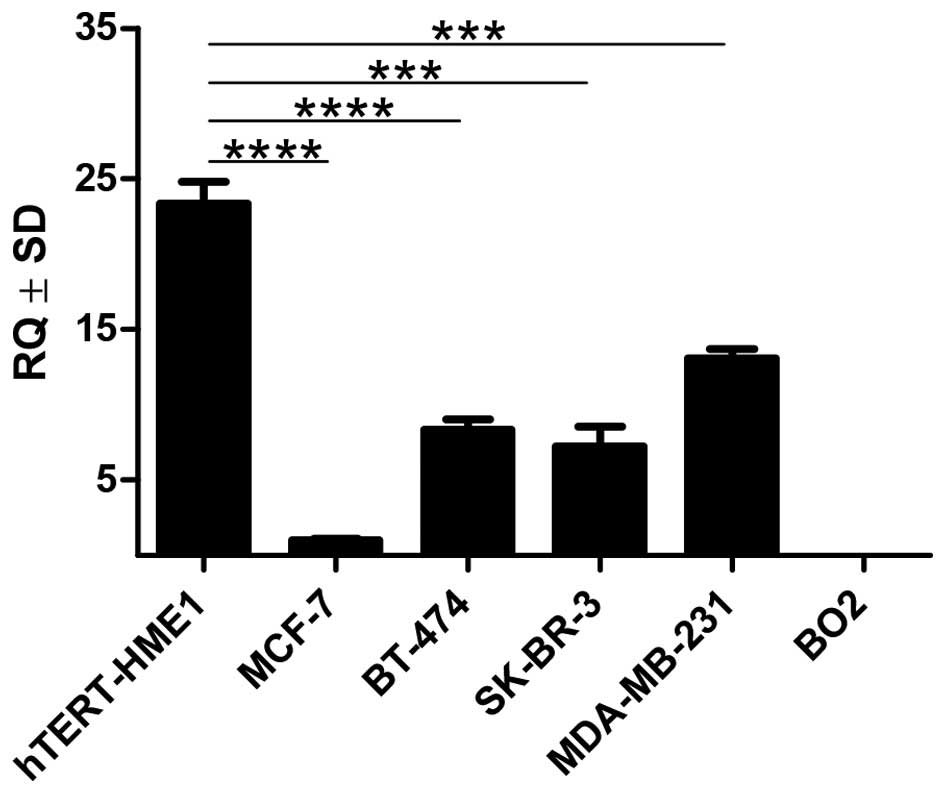|
1
|
Coyle P, Philcox JC, Carey LC and Rofe AM:
Metallothionein: the multipurpose protein. Cell Mol Life Sci.
59:627–647. 2002. View Article : Google Scholar : PubMed/NCBI
|
|
2
|
Romero-Isart N and Vasák M: Advances in
the structure and chemistry of metallothioneins. J Inorg Biochem.
88:388–396. 2002. View Article : Google Scholar : PubMed/NCBI
|
|
3
|
Dziegiel P, Pula B, Kobierzycki C,
Stasiolek M and Podhorska-Okolow M: Metallothioneins: structure and
functions. Adv Anat Embryol Cell Biol. 218:3–20. 2016. View Article : Google Scholar
|
|
4
|
Vasák M: Advances in metallothionein
structure and functions. J Trace Elem Med Biol. 19:13–17. 2005.
View Article : Google Scholar : PubMed/NCBI
|
|
5
|
Thirumoorthy N, Manisenthil Kumar KT,
Shyam Sundar A, Panayappan L and Chatterjee M: Metallothionein: an
overview. World J Gastroenterol. 13:993–996. 2007. View Article : Google Scholar : PubMed/NCBI
|
|
6
|
Uchida Y, Takio K, Titani K, Ihara Y and
Tomonaga M: The growth inhibitory factor that is deficient in the
Alzheimer’s disease brain is a 68 amino acid metallothionein-like
protein. Neuron. 7:337–347. 1991. View Article : Google Scholar : PubMed/NCBI
|
|
7
|
Quaife CJ, Findley SD, Erickson JC,
Froelick GJ, Kelly EJ, Zambrowicz BP and Palmiter RD: Induction of
a new metallothionein isoform (MT-IV) occurs during differentiation
of stratified squamous epithelia. Biochemistry. 33:7250–7259. 1994.
View Article : Google Scholar : PubMed/NCBI
|
|
8
|
Moffatt P and Séguin C: Expression of the
gene encoding metallothionein-3 in organs of the reproductive
system. DNA Cell Biol. 17:501–510. 1998. View Article : Google Scholar : PubMed/NCBI
|
|
9
|
Haq F, Mahoney M and Koropatnick J:
Signaling events for metallothionein induction. Mutat Res.
533:211–226. 2003. View Article : Google Scholar : PubMed/NCBI
|
|
10
|
Hozumi I, Suzuki JS, Kanazawa H, Hara A,
Saio M, Inuzuka T, Miyairi S, Naganuma A and Tohyama C:
Metallothionein-3 is expressed in the brain and various peripheral
organs of the rat. Neurosci Lett. 438:54–58. 2008. View Article : Google Scholar : PubMed/NCBI
|
|
11
|
Sato M and Kondoh M: Recent studies on
metallothionein: protection against toxicity of heavy metals and
oxygen free radicals. Tohoku J Exp Med. 196:9–22. 2002. View Article : Google Scholar : PubMed/NCBI
|
|
12
|
Theocharis SE, Margeli AP and Koutselinis
A: Metallothionein: a multifunctional protein from toxicity to
cancer. Int J Biol Markers. 18:162–169. 2003.PubMed/NCBI
|
|
13
|
Cherian MG, Jayasurya A and Bay BH:
Metallothioneins in human tumors and potential roles in
carcinogenesis. Mutat Res. 533:201–209. 2003. View Article : Google Scholar : PubMed/NCBI
|
|
14
|
Nielsen AE, Bohr A and Penkowa M: The
Balance between life and death of cells: roles of metallothioneins.
Biomark Insights. 7:99–111. 2007.
|
|
15
|
Theocharis SE, Margeli AP, Klijanienko JT
and Kouraklis GP: Metallothionein expression in human neoplasia.
Histopathology. 45:103–118. 2004. View Article : Google Scholar : PubMed/NCBI
|
|
16
|
Pedersen MØ, Larsen A, Stoltenberg M and
Penkowa M: The role of metallothionein in oncogenesis and cancer
prognosis. Prog Histochem Cytochem. 44:29–64. 2009. View Article : Google Scholar : PubMed/NCBI
|
|
17
|
Dziegiel P, Forgacz J, Suder E, Surowiak
P, Kornafel J and Zabel M: Prognostic significance of
metallothionein expression in correlation with Ki-67 expression in
adenocarcinomas of large intestine. Histol Histopathol. 18:401–407.
2003.PubMed/NCBI
|
|
18
|
Tai SK, Tan OJ, Chow VT, Jin R, Jones JL,
Tan PH, Jayasurya A and Bay BH: Differential expression of
metallothionein 1 and 2 isoforms in breast cancer lines with
different invasive potential: identification of a novel nonsilent
metallothionein-1H mutant variant. Am J Pathol. 163:2009–2019.
2003. View Article : Google Scholar : PubMed/NCBI
|
|
19
|
Dziegiel P, Salwa-Zurawska W, Zurawski J,
Wojnar A and Zabel M: Prognostic significance of augmented
metallothionein (MT) expression correlated with Ki-67 antigen
expression in selected soft tissue sarcomas. Histol Histopathol.
20:83–89. 2005.
|
|
20
|
Gallicchio LM, Flaws JA, Fowler BA and
Ioffe OB: Metallothionein expression in invasive and in situ breast
carcinomas. Cancer Detect Prev. 29:332–337. 2005. View Article : Google Scholar : PubMed/NCBI
|
|
21
|
Szajerka A, Dziegiel P, Szajerka T, Zabel
M, Winowski J and Grzebieniak Z: Immunohistochemical evaluation of
metallothionein, MCM-2 and Ki-67 antigen expression in tumors of
the adrenal cortex. Anticancer Res. 28:2959–2965. 2008.PubMed/NCBI
|
|
22
|
Cardoso SV, Silveira-Júnior JB, De
Carvalho Machado V, De-Paula AM, Loyola AM and De Aguiar MC:
Expression of metallothionein and p53 antigens are correlated in
oral squamous cell carcinoma. Anticancer Res. 29:1189–1193.
2009.PubMed/NCBI
|
|
23
|
Wojnar A, Pula B, Piotrowska A, Jethon A,
Kujawa K, Kobierzycki C, Rys J, Podhorska-Okolow M and Dziegiel P:
Correlation of intensity of MT-I/II expression with Ki-67 and MCM-2
proteins in invasive ductal breast carcinoma. Anticancer Res.
31:3027–3033. 2011.PubMed/NCBI
|
|
24
|
Wang N, Dong CR, Jiang R, Tang C, Yang L,
Jiang QF, Chen GG and Liu ZM: Overexpression of HIF-1α,
metallothionein and SLUG is associated with high TNM stage and
lymph node metastasis in papillary thyroid carcinoma. Int J Clin
Exp Pathol. 15:322–330. 2013.
|
|
25
|
Surowiak P, Matkowski R, Materna V,
Györffy B, Wojnar A, Pudelko M, Dziegiel P, Kornafel J and Zabel M:
Elevated metallothionein (MT) expression in invasive ductal breast
cancers predicts tamoxifen resistance. Histol Histopathol.
20:1037–1044. 2005.PubMed/NCBI
|
|
26
|
Surowiak P, Materna V, Maciejczyk A,
Pudeko M, Markwitz E, Spaczyski M, Dietel M, Zabel M and Lage H:
Nuclear metallothionein expression correlates with cisplatin
resistance of ovarian cancer cells and poor clinical outcome.
Virchows Arch. 450:279–285. 2007. View Article : Google Scholar : PubMed/NCBI
|
|
27
|
Yap X, Tan HY, Huang J, Lai Y, Yip GW, Tan
PH and Bay BH: Over-expression of metallothionein predicts
chemoresistance in breast cancer. J Pathol. 217:563–570. 2009.
View Article : Google Scholar : PubMed/NCBI
|
|
28
|
Dziegiel P, Pula B, Kobierzycki C,
Stasiolek M and Podhorska-Okolow M: The role of metallothioneins in
carcinogenesis. Adv Anat Embryol Cell Biol. 218:29–63. 2016.
View Article : Google Scholar
|
|
29
|
Palmiter RD, Findley SD, Whitmore TE and
Durnam DM: MT-III, a brain-specific member of the metallothionein
gene family. Proc Natl Acad Sci USA. 89:6333–6337. 1992. View Article : Google Scholar : PubMed/NCBI
|
|
30
|
Tsuji S, Kobayashi H, Uchida Y, Ihara Y
and Miyataka T: Molecular cloning of human growth inhibitory factor
cDNA and its downregulationin Alzheimer’s disease. EMBO J.
11:4843–4850. 1992.PubMed/NCBI
|
|
31
|
Sogawa CA, Asanuma M, Sogawa N, Miyazaki
I, Nakanishi T, Furuta H and Ogawa N: Localization, regulation, and
function of metallothionein-III/growth inhibitory factor in the
brain. Acta Med Okayama. 55:1–9. 2001.PubMed/NCBI
|
|
32
|
Dziegiel P, Pula B, Kobierzycki C,
Stasiolek M and Podhorska-Okolow M: Metallothionein-3. Adv Anat
Embryol Cell Biol. 218:21–27. 2016. View Article : Google Scholar
|
|
33
|
Sewell AK, Jensen LT, Erickson JC,
Palmiter RD and Winge DR: Bioactivity of metallothionein-3
correlates with its novel beta domain sequence rather than metal
binding properties. Biochemistry. 34:4740–4747. 1995. View Article : Google Scholar : PubMed/NCBI
|
|
34
|
Hoey JG, Garrett SH, Sens MA, Todd JH and
Sens DA: Expression of MT-3 mRNA in human kidney, proximal tubule
cell cultures, and renal cell carcinoma. Toxicol Lett. 92:149–160.
1997. View Article : Google Scholar : PubMed/NCBI
|
|
35
|
Garrett SH, Sens MA, Todd JH, Somji S and
Sens DA: Expression of MT-3 protein in the human kidney. Toxicol
Lett. 105:207–214. 1999. View Article : Google Scholar : PubMed/NCBI
|
|
36
|
Garrett SH, Sens MA, Shukla D, Nestor S,
Somji S, Todd JH and Sens DA: Metallothionein isoform 3 expression
in the human prostate and cancer-derived cell lines. Prostate.
41:196–202. 1999. View Article : Google Scholar : PubMed/NCBI
|
|
37
|
Kim D, Garrett SH, Sens MA, Somji S and
Sens DA: Metallothionein isoform 3 and proximal tubule vectorial
active transport. Kidney Int. 61:464–472. 2002. View Article : Google Scholar : PubMed/NCBI
|
|
38
|
Irie Y, Mori F, Keung WM, Mizushima Y and
Wakabayashi K: Expression of neuronal growth inhibitory factor
(metallothionein-III) in the salivary gland. Physiol Res.
53:719–723. 2004.PubMed/NCBI
|
|
39
|
Sens MA, Somji S, Lamm DL, Garrett SH,
Slovinsky F, Todd JH and Sens DA: Metallothionein isoform 3 as a
potential biomarker for human bladder cancer. Environ Health
Perspect. 108:413–418. 2000. View Article : Google Scholar : PubMed/NCBI
|
|
40
|
Sens MA, Somji S, Garrett SH, Beall CL and
Sens DA: Metallothionein isoform 3 overexpression is associated
with breast cancers having a poor prognosis. Am J Pathol.
159:21–26. 2001. View Article : Google Scholar : PubMed/NCBI
|
|
41
|
El-Rifai W, Frierson HF Jr, Harper JC,
Powell SM and Knuutila S: Expression profiling of gastric
adenocarcinoma using cDNA array. Int J Cancer. 92:832–838. 2001.
View Article : Google Scholar : PubMed/NCBI
|
|
42
|
Smith E, Drew PA, Tian ZQ, De Young NJ,
Liu JF, Mayne GC, Ruszkiewicz AR, Watson DI and Jamieson GG:
Metallothionien 3 expression is frequently down-regulated in
oesophageal squamous cell carcinoma by DNA methylation. Mol Cancer.
13:422005. View Article : Google Scholar
|
|
43
|
Werynska B, Pula B, Muszczynska-Bernhard
B, Gomulkiewicz A, Jethon A, Podhorska-Okolow M, Jankowska R and
Dziegiel P: Expression of metallothionein-III in patients with
non-small cell lung cancer. Anticancer Res. 33:965–974.
2013.PubMed/NCBI
|
|
44
|
Ellis IO, Schnitt SJ, Sastre-Garau X,
Bussolati G, Tavassoli FA, Eusebi V, Peterse JL, Mukai K, Tabár L,
Jacquemier J, et al: Invasive breast carcinoma. Pathology and
Genetics of Tumours of the Breast and Female Genital Organs. World
Health Organization Classification of Tumours. Tavassoli FA and
Devilee P: IARC Press; Lyon: pp. 13–59. 2003
|
|
45
|
Remmele W and Stegner HE: Recommendation
for uniform definition of an immunoreactive score (IRS) for
immunohistochemical estrogen receptor detection (ER-ICA) in breast
cancer. Pathologe. 8:138–140. 1987.(In German). PubMed/NCBI
|
|
46
|
Gomulkiewicz A, Podhorska-Okolow M, Szulc
R, Smorag Z, Wojnar A, Zabel M and Dziegiel P: Correlation between
metallothionein (MT) expression and selected prognostic factors in
ductal breast cancers. Folia Histochem Cytobiol. 48:242–248. 2010.
View Article : Google Scholar : PubMed/NCBI
|
|
47
|
Mueller-Holzner E, Fink V, Frede T and
Marth C: Immunohistochemical determination of HER2 expression in
breast cancer from core biopsy specimens: a reliable predictor of
HER2 status of the whole tumor. Breast Cancer Res Treat. 69:13–19.
2001. View Article : Google Scholar
|
|
48
|
Livak KJ and Schmittgen TD: Analysis of
relative gene expression data using real-time quantitative PCR and
the 2−ΔΔCt method. Methods. 25:402–408. 2001. View Article : Google Scholar
|
|
49
|
Amoureux MC, Wurch T and Pauwels PJ:
Modulation of metallothionein-III mRNA content and growth rate of
rat C6-glial cells by transfection with human 5-HT1D receptor
genes. Biochem Biophys Res Commun. 214:639–645. 1995. View Article : Google Scholar : PubMed/NCBI
|
|
50
|
You HJ, Oh DH, Choi CY, Lee DG, Hahm KS,
Moon AR and Jeong HG: Protective effect of metallothionein-III on
DNA damage in response to reactive oxygen species. Biochim Biophys
Acta. 1573:33–38. 2002. View Article : Google Scholar : PubMed/NCBI
|
|
51
|
Jeong HG, Youn CK, Cho HJ, Kim SH, Kim MH,
Kim HB, Chang IY, Lee YS, Chung MH and You HJ: Metallothionein-III
prevents gamma-ray-induced 8-oxoguanine accumulation in normal and
hOGG1-depleted cells. J Biol Chem. 279:34138–34149. 2004.
View Article : Google Scholar : PubMed/NCBI
|
|
52
|
Hozumi I, Uchida Y, Watabe K, Sakamoto T
and Inuzuka T: Growth inhibitory factor (GIF) can protect from
brain damage due to stab wounds in rat brain. Neurosci Lett.
395:220–223. 2006. View Article : Google Scholar
|
|
53
|
Kim HG, Hwang YP and Jeong HG:
Metallothionein-III induces HIF-1 alpha-mediated VEGF expression in
brain endothelial cells. Biochem Biophys Res Commun. 369:666–671.
2008. View Article : Google Scholar : PubMed/NCBI
|
|
54
|
Luo Y, Xu Y, Bao Q, Ding Z, Zhu C, Huang
ZX and Tan X: The molecular mechanism for human metallothionein-3
to protect against the neuronal cytotoxicity of Aβ(1–42) with Cu
ions. J Biol Inorg Chem. 18:39–47. 2013. View Article : Google Scholar
|
|
55
|
Somji S, Garrett SH, Zhou XD, Zheng Y,
Sens DA and Sens MA: Absence of metallothionein 3 expression in
breast cancer is a rare, but favorable marker of outcome that is
under epigenetic control. Toxicol Environ Chem. 92:1673–1695. 2010.
View Article : Google Scholar : PubMed/NCBI
|
|
56
|
Cherian MG and Apostolova MD: Nuclear
localization of metallothionein during cell proliferation and
differentiation. Cell Mol Biol (Noisy-le-grand). 46:347–356.
2000.
|
|
57
|
Apostolova MD, Chen S, Chakrabarti S and
Cherian MG: High-glucose-induced metallothionein expression in
endothelial cells: an endothelin-mediated mechanism. Am J Physiol
Cell Physiol. 281:C899–C907. 2001.PubMed/NCBI
|
|
58
|
Bay BH, Jin R and Jayasurya A: Analysis of
metallothionein expression in human cancers. Acta Histochem
Cytochem. 34:171–176. 2001. View Article : Google Scholar
|
|
59
|
Takahashi Y, Ogra Y and Suzuki KT: Nuclear
trafficking of metallothionein requires oxidation of a cytosolic
partner. J Cell Physiol. 202:563–569. 2005. View Article : Google Scholar
|
|
60
|
Szelachowska J, Dziegiel P,
Jelen-Krzeszewska J, Jelen M, Tarkowski R, Wlodarska I, Spytkowska
B, Gisterek I, Matkowski R and Kornafel J: Prognostic significance
of nuclear and cytoplasmic expression of metallothioneins as
related to proliferative activity in squamous cell carcinomas of
oral cavity. Histol Histopathol. 23:843–851. 2008.PubMed/NCBI
|
|
61
|
Kobierzycki C, Pula B, Skiba M, Jablonska
K, Latkowski K, Zabel M, Nowak-Markwitz E, Spaczynski M, Kedzia W,
Podhorska-Okolow M, et al: Comparison of minichromosome maintenance
proteins (MCM-3, MCM-7) and metallothioneins (MT-I/II, MT-III)
expression in relation to clinicopathological data in ovarian
cancer. Anticancer Res. 33:5375–5383. 2013.PubMed/NCBI
|
|
62
|
Elias AD: Triple-negative breast cancer: a
short review. Am J Clin Oncol. 33:637–645. 2010. View Article : Google Scholar
|
|
63
|
Lin NU, Vanderplas A, Hughes ME, Theriault
RL, Edge SB, Wong YN, Blayney DW, Niland JC, Winer EP and Weeks JC:
Clinicopathologic features, patterns of recurrence, and survival
among women with triple-negative breast cancer in the National
Comprehensive Cancer Network. Cancer. 118:5463–5472. 2012.
View Article : Google Scholar : PubMed/NCBI
|
|
64
|
Kmiecik AM, Pula B, Suchanski J, Olbromski
M, Gomulkiewicz A, Owczarek T, Kruczak A, Ambicka A, Rys J,
Ugorski, et al: Metallothionein-3 increases triple-negative breast
cancer cell invasiveness via induction of metalloproteinase
expression. PLoS One. 10:e01248652015. View Article : Google Scholar : PubMed/NCBI
|
|
65
|
Deng D, El-Rifai W, Ji J, Zhu B, Trampont
P, Li J, Smith MF and Powel SM: Hypermethylation of
metallothionein-3 CpG island in gastric carcinoma. Carcinogenesis.
24:25–29. 2003. View Article : Google Scholar : PubMed/NCBI
|
|
66
|
Peng D, Hu TL, Jiang A, Washington MK,
Moskaluk CA, Schneider-Stock R and El-Rifai W: Location-specific
epigenetic regulation of the metallothionein 3 gene in esophageal
adenocarcinomas. PLoS One. 6:e220092011. View Article : Google Scholar : PubMed/NCBI
|
|
67
|
Tao YF, Xu LX, Lu J, Cao L, Li ZH, Hu SY,
Wang NN, Du XJ, Sun LC, Zhao WL, et al: Metallothionein III (MT3)
is a putative tumor suppressor gene that is frequently inactivated
in pediatric acute myeloid leukemia by promoter hypermethylation. J
Transl Med. 12:1822014. View Article : Google Scholar : PubMed/NCBI
|
|
68
|
Dutta R, Sens DA, Somji S, Sens MA and
Garrett SH: Metallothionein isoform 3 expression inhibits cell
growth and increases drug resistance of PC-3 prostate cancer cells.
Prostate. 52:89–97. 2002. View Article : Google Scholar : PubMed/NCBI
|
|
69
|
Gurel V, Sens DA, Somji S, Garrett SH,
Nath J and Sens MA: Stable transfection and overexpression of
metallothionein isoform 3 inhibits the growth of MCF-7 and Hs578T
cells but not that of T-47D or MDA-MB-231 cells. Breast Cancer Res
Treat. 80:181–191. 2003. View Article : Google Scholar : PubMed/NCBI
|
|
70
|
Tian ZQ, Xu YZ, Zhang YF, Ma GF, He M and
Wang GY: Effects of metallothionein-3 and metallothionein-1E gene
transfection on proliferation, cell cycle, and apoptosis of
esophageal cancer cells. Genet Mol Res. 12:4595–4603. 2013.
View Article : Google Scholar : PubMed/NCBI
|
|
71
|
Ramaswamy S, Ross KN, Lander ES and Golub
TR: A molecular signature of metastasis in primary solid tumors.
Nat Genet. 33:49–54. 2003. View
Article : Google Scholar
|
|
72
|
Giorgi RR, Correa-Giannella ML, Casarini
AP, Machado MC, Bronstein MD, Cescato VA and Giannella-Neto D:
Metallothionein isoform 3 gene is differentially expressed in
corticotropin-producing pituitary adenomas. Neuroendocrinology.
82:208–214. 2005. View Article : Google Scholar
|















